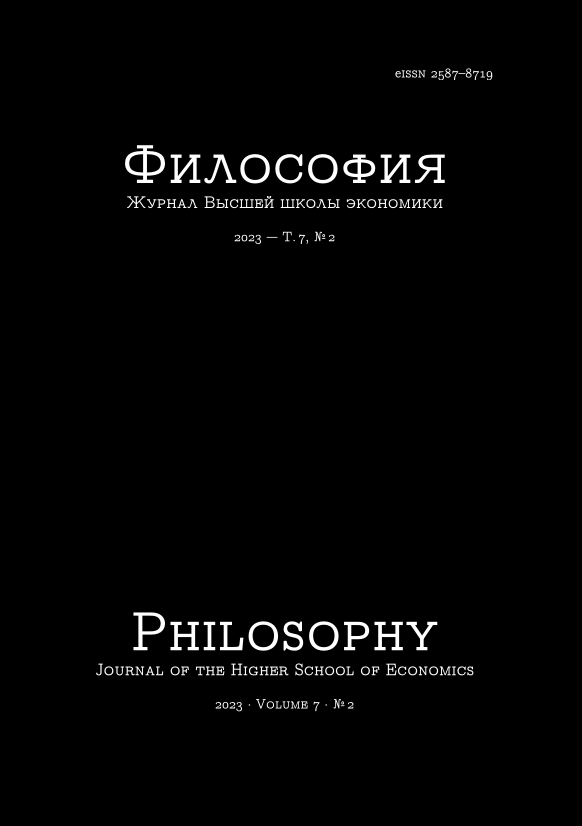Teleonomic and Cognitive Factors in Evolution
Recent Discussions and Unsolved Philosophical and Methodological Problems
Abstract
In light of modern discoveries in the natural sciences, the article revises models of the evolutionary process based on the idea of directed (teleonomic) development of biological and biosocial systems. The authors attempt to systematize the existing teleonomic (orthogenetic, nomogenetic) approaches to evolution, especially those of Russian scientists. The theory and methodology of neo-Darwinism (The Modern Synthetic Theory of Evolution) are being critically revised due to its assertion that environmental changes are the leading acting cause of evolutionary development and explanations for the formation of new traits (variability, adaptation) by random genetic mutations. It is argued that biological systems are partially intelligent (have a broadly researched “minimal cognition”), capable of collecting information and directed transformation of themselves and the environment. For the description of cognitive processes in organisms that do not have a nervous system, the paradigm of embodied cognition is used. To explain the nature of developing systems and system transitions in evolution, the authors use the concepts of “distributed action” and “distributed cognition.” The article argues for the existence in nature not just individual but also system, supra-individual goal-directness (e.g., in bacteria and social insects). In this regard, the traditional bottom-up evolutionary model (determination from elements to the system) is complemented by the top-down evolution/determination model (from system to its elements). It is emphasized that socio-cognitive and informational processes play an important role in the interactions between the system and elements, which was not seriously taken into account in previous macro-evolutionary studies. In system interactions, the decisive role is also shown for genetic and non-genetic (epigenetic) inheritance systems. They allow the accumulation of species-specific experience, determine the formation of instinctive behavior, and provide a general reproduction of the structure of biological and social systems.
Downloads
Copyright (c) 2023 Philosophy. Journal of the Higher School of Economics

This work is licensed under a Creative Commons Attribution-NonCommercial 4.0 International License.






